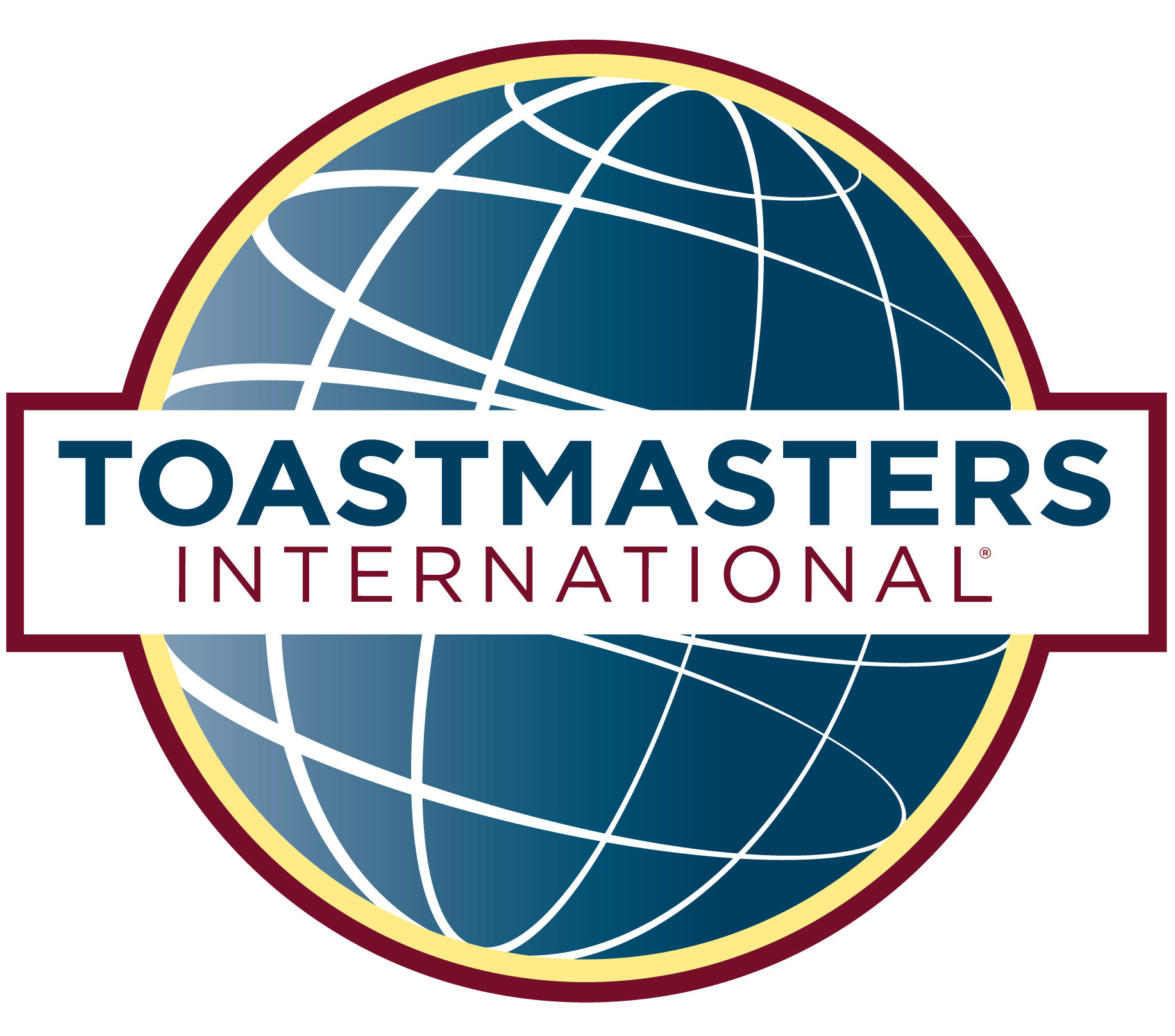Chosen by Toastmaster of the Evening Alex, the theme of good habits was the leitmotif of the meeting. It was emphasized in Larry’s toast (he recommended habits that leads to good health, then wished us an appreciation of health when we have it, and good friends and good wine when we don’t) and Caroline’s joke (using the idea that there are some healthy habits that children don’t like, such as eating spinach).
Alex reminded us of Aristotle’s notion that excellence is a habit, not an act. Many would-be members, he told us, wonder if they can ever speak confidently, but it only takes practice. In a neat transition, he noted that Table Topics gives us a chance to rehearse “another important part of the Toastmaster arsenal,” impromptu public speaking.
Silvia’s theme-focused choices allowed us to learn more about our members’ habits. Amir no longer smokes, drinks less, and now does sports, but the habit he is most proud of is reading, through which he has gained confidence, understanding of himself and the world, and a source of happiness. Connal wants to maintain his current good habits, particularly his no-smoking, weightlifting, and yoga. Nadège would like to reduce her bread-eating habit, very difficult in Paris! Nikoleta suggests that the only way to build new habits is to take baby steps, as trying to do too much at once leads to failure. Margot explained that her childhood habit of avoiding reading was explained by her dyslexia, but she now uses audiobooks. Vincent explained that if we are looking for excellence, we need good habits – determining our objectives, understanding our passions, and engaging our curiosity.
As is our habit, this was followed by the prepared speeches and evaluations.
Danielle, evaluating Anaëlle’s “The Unexpected Mentor”, praised a “great speech” that achieved the objective of sharing her experience as a protégé. On of the strong points was the opening description of Einstein, which piqued our imagination and made us wonder where the speech was going. Danielle enjoyed Anaëlle’s personal story which became the thread throughout the speech, the structure with its clear signposting, and the ideas of how to make the most out of having a mentor. Next she made some suggestions for improvement: avoiding unnecessary gestures, using stillness, and taking the time to pause and breathe.
Laura F stressed that before starting to write a speech, it is vital to understand what you want to let the audience know, as Josep had done in “The Supreme Art”. She suggested that the basic outline of the speech was very clear and liked the inclusion of all four communication styles with examples from his interactions over the day. Additionally, Laura commended Josep’s “great stage presence” and confidence, demonstrated by moving from behind the lectern, his use of slow and deliberate eye contact, good hand gestures, and his open body language. Moving forwards, Laura wondered if the opening analogy (to art) was too detailed. She advised Josep to vary his tone in accordance with the subject – for example, modelling ‘direct’ communication when describing his discussion with the manager. Finally, she suggested that the ending was rather abrupt.
As Suzanne was giving an Icebreaker – her third! – Martin, evaluating, said he tried to forget everything he already knew about her. From her speech, he concluded that she was brave, sensitive, anxious, comedian, dramatic, articulate, and poetic. Martin commended the title “Lost and Found” as creating curiosity, and he liked the deferral of any explanation until the end – that in losing her way, she had found herself. He complimented Suzanne for initially standing still, suggesting that this allowed the audience to start to form their own judgment. He enjoyed the Lewis Carroll imagery of “falling down the immigrant rabbit hole”, as well as the use of interesting word combination and dry comedy. Although Martin noted that Suzanne’s eye contact was too brief and recommended that she work on pacing so we can relish her poetry and her humor, he concluded that “Raised eyebrows and wide-eyed expressiveness carried the day!”
In other evaluations, Vincent noted that, quirk, the word of the evening, had been used by Debbie, Alex, Edward, and Anaëlle, but Nadège, who had used it three times, was pronounced the winner. Amir, appointed stumble catcher of the evening, reported dutifully but noted that ordinarily, most stumbles and pauses are not noticeable, particularly when the speaker is good.
Benoit, general evaluator for the first time, had some interesting comments. He commended the way Alex opens meetings by running through some rules, noting how informative this is for guests. He noted that although the guests had been introduced later than usual, this might be a better format, as it allows them the option of trying the word of the evening, as Debbie had. He gave a special mention to Margot for accepting a table topic despite admitting her nervousness, commended Josep and Martin for taking on roles at the last minute, and noted that the table topics as a good choice for the beginning of the year. Regarding potential improvements, he reminded evaluators to look at timecards. Stressing his frustration with last-minute program changes, Benoit explained that this puts a real burden on the Toastmaster of the Evening, and urged that roles should be seen as commitments. Finally, he noted that the vegetarian option is always the same, suggesting that the sergeant-at-arms might see if there could be some variety to the menu.
As the evening drew to a close, we heard from our guests, who provide outsiders’ objectivity. Massiva, a first-timer, said she felt inspired to excellence and good habits for the year. Debbie, who had originally come to please a friend, was returning to please herself, having found “a wonderful balance of seriousness and fun and a good smattering of graciousness.” Theo, who originally came with his sister Yasmine, intends to come back for a third time, as this is the place to improve skills because there is no judgment. Jens, also on a second visit and planning a third, noted that whether or not one is a native English speaker, the focus is on communication and getting the message across. Margot, already on her third visit and having undertaken a table topic, now feels braver and thinks she could do it again! Edward, who speaks professionally, found us welcoming and enjoyed the setting, adding that if he had discovered Toastmasters earlier, he might have benefited from the training, but he argued that the Toastmasters rules were too strict – no interruptions, questions, or interactions! Hui, returning for a second visit as she enjoys the friendly atmosphere, defended that the rules as helpful.
Alex concluded the evening with news of the contest. He will act as contest chair, but we now need a chief judge and other roles, contestants included. (The calendar for area and district contests is on the website.)
Finally, congratulations to the evening’s winners – Laura F for evaluation, Nikoleta for table topics, and Suzanne for the speech. See you on February 7th!


Comments are closed